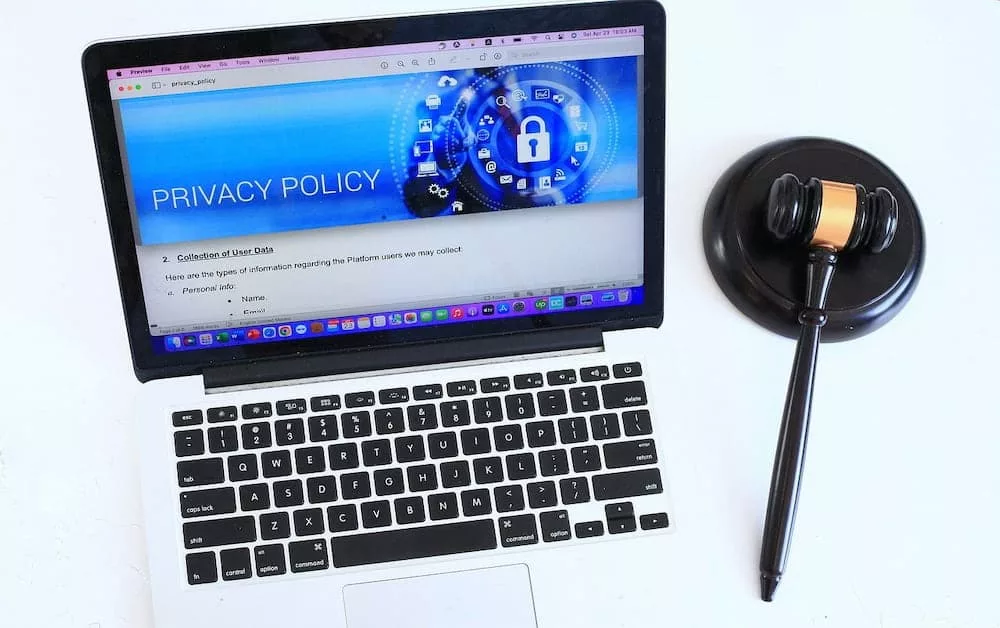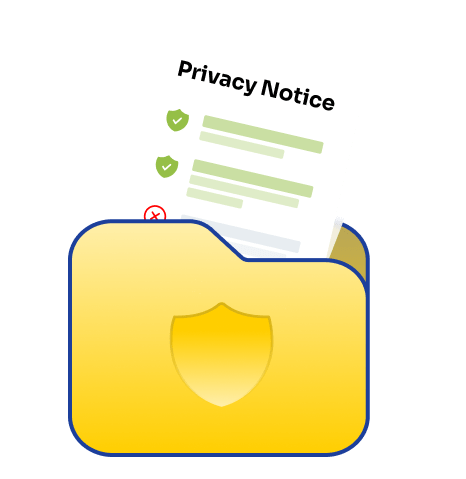Introduction
Data is the lifeblood of the modern world. It fuels businesses, connects individuals, and drives innovation. However, with the increasing amount of data being collected and processed, concerns about data privacy and security have never been more relevant. This article delves deep into the role of privacy notice in safeguarding your data, covering essential topics related to data protection, privacy laws, and best practices.
The significance of data collection and privacy
Data collection is not only essential for an organization’s operations, but it is also crucial in gaining insights into customers’ behavior and needs. With the increasing use of technology, data collection has become more accessible and efficient, making it possible to collect vast amounts of information from different sources. However, this also comes with the responsibility of protecting individuals’ privacy and ensuring that data is used ethically and transparently. As a result, laws and regulations, such as the General Data Protection Regulation (GDPR) and the California Consumer Privacy Act (CCPA), have been put in place to govern data collection practices.
Understanding data privacy laws
The protection of personal data is a significant concern for individuals and organizations alike. Key legislations such as the General Data Protection Regulation (GDPR) and the California Consumer Privacy Act (CCPA) have been established to ensure that organizations handle personal data responsibly and with care. These legal frameworks provide individuals with greater control over their personal information and put the onus on organizations to be transparent about how they collect, process, and store personal data. The GDPR and CCPA have set the standard for data protection, and other countries and regions are following suit by implementing similar regulations to safeguard personal data.
The crucial role of data security
Data security is a vital aspect of modern business operations. It is the process of implementing measures to protect sensitive information from unauthorized access and data breaches. Data breaches can have serious consequences for businesses, including reputational damage, financial loss, and legal liability. Therefore, it is essential for companies to maintain the trust of their customers and stakeholders by ensuring that their data is safeguarded against potential threats. This can be achieved through various measures such as encryption, access controls, firewalls, and regular security audits.

The responsibilities of a data controller
The data controller is a vital entity responsible for determining the purposes and means of processing personal data. In fact, they play an indispensable role in ensuring data protection. With the increasing amount of personal data being collected and processed, the role of a data controller becomes even more critical. It is their responsibility to ensure that personal data is collected and processed in accordance with the law. They must also ensure that the data is used only for the intended purpose and that appropriate security measures are in place to protect it from unauthorized access, alteration, or destruction. The importance of the data controller cannot be overstated In the current era of technology and digital advancements, where privacy and data protection are of utmost importance.
Personal data and data subjects
A key aspect of data protection compliance is clearly understanding what constitutes personal data and the corresponding rights of data subjects. This knowledge is crucial in ensuring that individuals’ privacy rights are upheld and that their personal data is processed in a fair and lawful manner. Without this understanding, organizations risk breaching regulations and facing serious consequences, which can include hefty fines and reputational damage. Therefore, it is important to stay up-to-date with the latest developments in data protection laws and regulations and to implement appropriate measures to safeguard the personal data of individuals.
Safeguarding sensitive personal data
Sensitive data, such as health records or financial information, requires special protection due to its potential for misuse and harm. This is particularly true in today’s digital age, where data breaches and cyber attacks have become increasingly common. The consequences of such incidents can be severe for individuals and organizations. That’s why it’s crucial to implement robust security measures and protocols to safeguard sensitive data and prevent unauthorized access. This includes encryption, access controls, and regular security audits, among other things. By doing so, we can help ensure that sensitive data remains safe and secure and that individuals and organizations can maintain their clients’ and customers’ trust and confidence.
Data processing activities
Data processing activities encompass a wide range of actions related to personal data, from collection, organization, and structure to storage, retrieval, use, and disclosure. These activities are crucial to the functioning of many businesses and organizations, but they also carry significant privacy and security risks that must be carefully managed and mitigated to ensure compliance with applicable laws and regulations. As such, it is important for organizations to develop comprehensive data processing policies and procedures that are designed to protect the privacy and security of individuals’ personal data throughout the entire data processing lifecycle.
The role of privacy notices
Privacy notices are essential documents that provide individuals with comprehensive information about how an organization handles their personal data. These notices outline the data processing practices of an organization and inform individuals about their rights and choices regarding their personal information. They also play a critical role in building trust between the organization and the individuals whose data they process. By providing clear and concise information about their data handling practices, organizations can ensure that individuals are fully aware of how their personal data is being used and can make informed decisions regarding their privacy.

The significance of privacy notices for website visitors
Websites that collect user data are required to have privacy notices to ensure transparency and inform visitors about how their personal information is used. Privacy notices are particularly crucial for website visitors as they explain what data is collected, for what purposes, and how it’s used. With the increasing amount of personal data being stored and shared online, it’s more important than ever to have clear and concise privacy policies in place to protect users’ privacy and maintain their trust.
Collected data and its utilization
It is crucial to understand the nature of the data that is collected and how it is utilized. This knowledge empowers individuals to make informed decisions about their online interactions and protect their privacy. With the vast amount of personal information being shared on the internet, it’s important to be aware of the potential risks and take necessary measures to safeguard ourselves. By being mindful of data collection practices and staying informed about privacy policies, we can navigate the online world more confidently and securely.
Data sharing and third-party disclosures
Privacy is a critical concern for individuals, and privacy notices play a vital role in addressing those concerns. These notices typically provide a detailed overview of data-sharing practices, including third-party disclosures, which gives individuals transparency into how their information is shared. By understanding these practices, people can make informed decisions about their data and feel more confident that their privacy is being protected. Whether for personal or professional reasons, a clear understanding of data-sharing practices is essential in today’s world.
Data retention periods
As mentioned, privacy notices are a crucial aspect of data protection, as they provide individuals with important information about how their personal data is collected, processed, and stored. One key element of these notices is the duration for which data is retained, which helps ensure transparency and clarify an organization’s data storage practices. By clearly outlining how long data will be kept, individuals can make informed decisions about whether or not to share their data and can better understand how it will be used and protected over time.
Applicable regulations and security measures
In order to safeguard sensitive information, it is crucial for these organizations to comply with relevant regulations and implement rigorous security measures. These measures can include anything from data encryption and access controls to regular security audits and employee training programs. Organizations can avoid costly data breaches and build trust with customers and stakeholders by taking a proactive approach to data protection.
Protecting data from data breaches
Data breaches have become common, and the consequences can be severe. It is crucial for companies and organizations to take measures to protect sensitive data from such incidents. One way they do this is by providing privacy notices explaining the security measures to safeguard data. These notices serve as a guide for users and provide them with the confidence that their information is being handled responsibly. By being transparent about their data protection policies, companies can build trust with their customers and protect themselves from legal repercussions.

Legal basis for data processing
Privacy notices provide clarity on the legal basis for which data processing activities are conducted, ensuring compliance and transparency. These notices usually outline the type of personal data collected, the purpose of data processing, and the data subject’s rights. A well-crafted privacy notice not only protects the privacy of individuals but also builds trust and confidence in organizations that handle sensitive information.
Strict access controls
Organizations often implement strict access controls to protect sensitive data, limiting who can access and process personal information. Access controls are put in place to ensure that only authorized personnel have the ability to view, edit, or delete confidential data. These controls can take many forms, such as password protection, two-factor authentication, and firewalls. By implementing robust access controls, organizations can reduce the risk of data breaches and unauthorized access to sensitive information, thereby safeguarding their clients’ and customers’ privacy and security.
Legitimate interests and data protection
When it comes to privacy notices, organizations are responsible for describing their legitimate interests in processing personal data while ensuring that individual rights are respected. These notices play a critical role in building trust between organizations and their stakeholders, as they provide transparency and clarity on how personal data is collected, used, and shared. Privacy notices can also help individuals understand their rights and make informed decisions about their personal data. Therefore, it is important for organizations to ensure that their privacy notices are clear, concise, and easy to understand.
Data processing in mobile apps
Mobile apps have become an integral part of our daily lives and are used for a variety of tasks ranging from communication to entertainment. However, with the increasing use of mobile apps, the collection of personal data has become a concern for many users. As a result, privacy notices have become crucial for informing users about data practices. These notices outline how the app collects, uses, and shares personal information and the options users have to control their data. It is important for app developers to provide clear and concise privacy notices to ensure that users are aware of how their data is being handled.
Conclusion
In a landscape where data breaches and cyber threats are prevalent, protecting the confidentiality, integrity, and availability of personal information is paramount. Privacy notices emerge as essential tools in achieving this goal. Privacy notices ensure transparency and compliance with data protection laws by offering clear and concise information on data collection, processing, and protection. Moreover, they foster trust between organizations and customers, as individuals are more likely to share their personal information when confident in responsible and secure data handling. Prioritizing the creation and implementation of effective privacy notices reflects an organization’s commitment to data privacy and security in today’s data-driven environment.




